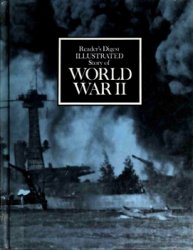The ground-level executors of the Great Terror were "deputized operational workers” of the NKVD. These seasoned and hardened officers, drawn primarily from the NKVD's State Security Administration, headed the operational groups that arrested and interrogated (and routinely tortured) prisoners, prepared the case files for the troika tribunal, and carried out the sentences. The operational group could not turn the shooting over to others. It was a task they did themselves, often after drinking themselves into a stupor. The operational group was the backbone of the Great Terror, and its head had the power of life or death, as summarized by the declaration of one operational worker: "I am the interrogator, the judge, and the executioner.”18
According to Russian criminal codes of the time, arrests required permission of the prosecutor's office—a civil agency nominally independent of the NKVD. This protection from arbitrary arrest was a thin reed, given that the prosecutor's office was dictated to by Stalin. As an extraordinary decree, Ezhov's 00447 set aside this minimal protection of civil rights. Ezhov's "order of carrying out operations” gave arrest authority to NKVD officials at the republican, regional, or provincial levels. It was their job to gather "incriminating evidence” for the preparation of arrest lists, which were approved by NKVD superiors. In the language of section three of Order No. 00447:
III. The Order of Carrying Out Operations
3. According to circumstances and local conditions, territories should be divided into operational sectors. An operational group should be formed for each sector, headed by a responsible republican, regional or provincial NKVD o"cial, who is able to organize serious operational tasks. In some cases, the most experienced and talented heads of regional and municipal departments may be named as heads of operational groups.
4. The operational groups must be staffed with the necessary number
Of operational workers and should have means of transportation and communication.
In connection with the necessities of the operational situation, military or militia subdivisions may be attached to the group.
5. The director of the operational group should manage interrogations, direct the investigation, confirm the incriminating conclusions, and carry out the sentence of the troika.
6. Detailed data and compromising materials must be gathered for every repressed person. Arrest lists are to be created from such material, signed by the head of the operational group and forwarded in two copies for examination and approval by the NKVD commissar of the republic or the director of the administration of the provincial department of the NKVD, who give permission for the arrest.
7. On the basis of the approved list, the head of the operational group carries out arrests. Every arrest is designed as an order.
In the course of the arrest, a careful search is to be conducted.
It is necessary to confiscate weapons, ammunition, explosives, poisons, counterrevolutionary literature, precious metals, ingots, foreign currency, duplicating equipment and correspondence. All confiscated material is registered in the search protocol.
8. Those arrested are to be concentrated in points, according to directives of superiors, which should have facilities suited for the accommodation of prisoners.
9. Those arrested will be strictly guarded. All measures should be organized to prevent their escape or other kinds of excesses.19




 World History
World History









